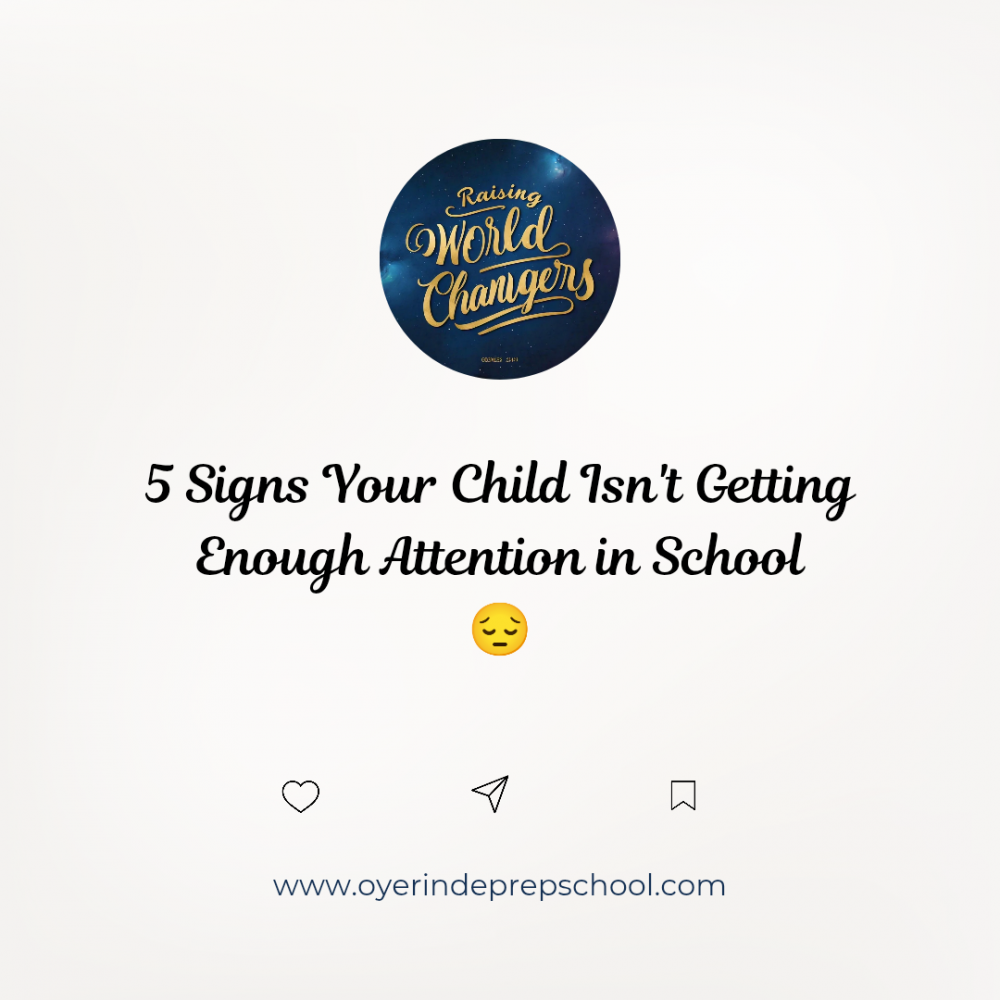
In a busy Nigerian classroom, it’s easy for a child to blend into the background. With large class sizes, overworked teachers, and limited resources, some children quietly fall through the cracks. While many parents focus on school fees, books, and uniforms, emotional and academic attention is just as vital. Here are five signs your child may not be getting the attention they need in school—and what they might be trying to tell you.
1. Withdrawn or Unusually Quiet in Class
A child who was once talkative and curious suddenly becomes quiet and distant. They may no longer volunteer answers in class or engage with their peers. For some children, this kind of withdrawal is a coping mechanism. In Nigerian schools, especially where there’s a heavy focus on the “sharp” and outspoken ones, quiet children can easily become invisible. Teachers might unintentionally overlook them, assuming they’re simply shy or naturally reserved. But sometimes, silence is a sign of emotional disconnection. When a child feels like their voice doesn’t matter or that no one notices when they contribute, they begin to fade into the background.
2. Frequent ‘I Don’t Know’ Responses
If your child constantly says “I don’t know” when asked about schoolwork or class activities, it may not just be a lack of knowledge. Children who feel ignored or unsupported in class often lose the confidence to even try. Over time, they start believing that their efforts don’t count, so they stop putting in the effort altogether. In Nigeria, where a teacher’s time may be stretched between 30–50 pupils per class, it’s easy for some kids to disengage completely, especially if they aren't naturally outspoken. A repeated “I don’t know” can be a child’s quiet way of saying, “No one notices me anyway.”
3. Sudden Drop in Academic Performance
A decline in a child’s school performance is often one of the clearest indicators that something is off. When a child who used to do well starts bringing home poor grades or incomplete assignments, many parents are quick to assume laziness. However, a deeper issue may be at play. When a child is not receiving enough attention, guidance, or feedback from their teachers, they can easily lose motivation. They might feel like no one cares whether they succeed or not. In the Nigerian context, where many teachers are under pressure to complete the syllabus quickly, children who don’t grasp lessons fast enough are sometimes left behind. This can lead to frustration and discouragement, which shows up as poor academic results.
4. Attention-Seeking or Disruptive Behaviour
Not all children respond to lack of attention by withdrawing—some do the opposite. If your child suddenly becomes the class clown, constantly distracts others, or frequently gets into trouble, it might be more than just mischief. Disruptive behaviour can often be a cry for attention. When a child feels overlooked in the classroom, they may act out in the only way they know how: by demanding to be noticed, even if it’s through negative attention. Unfortunately, in many Nigerian schools, such children are often labelled as “stubborn” or “bad,” and punished instead of being supported. What they really need is someone to see through the behaviour and ask, “Why are you acting out?”
5. Always Sick or Avoiding School
One of the more subtle signs is when a child starts complaining of frequent headaches, stomach aches, or general “not feeling well,” especially in the mornings before school. While it’s important to rule out medical issues, emotional stress can also show up physically in children. A child who feels unnoticed or unsupported in school may begin to dread the environment and subconsciously try to avoid it. In Nigeria, such complaints are sometimes waved off or even spiritualized, but children have their own way of saying “I don’t feel safe there.” If your child is always looking for excuses to stay home, it’s worth taking a closer look at what’s happening in school beyond the books.
---
Every child wants to feel seen, heard, and valued. And while it’s easy to assume that school is “handling” your child, the reality is that no system is perfect. As parents, caregivers, and educators, we need to be intentional about checking in with our children, asking the right questions, and truly listening to their responses. If you notice any of these signs, don’t panic—but don’t ignore them either. A little extra attention at the right time could make all the difference.
Have you noticed any of these signs in your child or student? Share your thoughts with us in the comments or send us a message. Let’s build a world where every child feels truly seen.